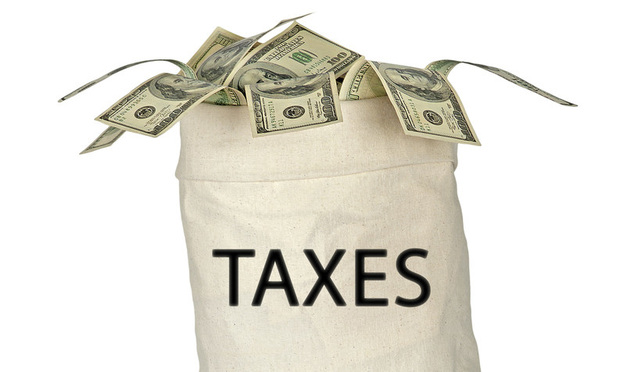Pa. High Court's Ruling Could Make It Harder for Employers to Avoid UC Tax
The Pennsylvania Supreme Court has raised the bar on what is required for an individual to be considered "self-employed" when determining an employer's tax liability under the state's Unemployment Compensation Law.
April 23, 2020 at 03:45 PM
5 minute read
 Photo: Shutterstock.
Photo: Shutterstock.
The Pennsylvania Supreme Court has raised the bar on what is required for an individual to be considered "self-employed" when determining an employer's tax liability under the state's Unemployment Compensation Law.
In A Special Touch v. Department of Labor & Industry, the justices unanimously ruled April 22 to reinstate a Department of Labor & Industry decision that imposed an unemployment compensation tax on plaintiff beauty salon A Special Touch for five people who worked there in various positions.
In August 2018, a three-judge panel of the Commonwealth Court ruled 2-1 to reverse the department's adjudication, finding that the five people the department determined to be employees, some of whom worked as nail technicians and some of whom performed janitorial, laundry and babysitting services, were actually self-employed independent contractors because they "were able to work for more than one entity; were not limited by the nature of their work for salon, or hours, to a single employer; and were not dependent upon salon's existence for ongoing work."
The Commonwealth Court majority, led by President Judge Mary Hannah Leavitt, said the unemployment compensation tax should not have applied to any of those 10 people because all were "customarily engaged in an independently established trade, occupation, profession or business" under Section 4(l)(2)(B) of the Unemployment Compensation Law.
The justices granted allocatur in March of last year to examine a single issue, as phrased by the defendant-petitioner: "Should this court exercise its supervision to provide the controlling interpretation of the phrase 'customarily engaged in an independent business' to define 'employment' in the Unemployment Compensation Law in order to resolve the inconsistent interpretations of the Commonwealth Court as to a definition that is fundamental to the administration of the [Unemployment Compensation] program and thus of significant public importance?"
In the high court's April 22 majority opinion, Justice Max Baer said that because Black's Law Dictionary defines the word "customarily" to mean "'usually, habitually, according to the customs; general practice or usual order of things; regularly,'" the phrase "customarily engaged" as used in the UC Law "requires an individual to be 'usually,' 'habitually' or 'regularly' 'employed' or 'involved' in activity; or 'employed' or 'involved' in activity 'according to the customs,' 'general practice,' or 'usual order of things.'"
"For the reasons discussed, we hold that the phrase 'customarily engaged' as used in Subsection 4(l)(2)(B) of the law requires that an individual actually be involved, as opposed to merely having the ability to be involved, in an independently established trade, occupation, profession, or business," said Baer, joined by Justices Christine Donohue, Kevin Dougherty and David Wecht.
But Baer did add that the court was not equating "'actual involvement' to a requirement that an individual 'actually perform his or her services' for third parties during a given time period."
"Thus, the analysis under this requirement does not simply turn on the extent to which an individual actually provides his or her services to either the putative employer or third parties, although these considerations are certainly relevant," Baer explained. "Rather, the 'customarily engaged' language can encompass more activity than actually providing services for others, so long as it is demonstrated that the individual is in some way actually involved in an independently established trade or business. In this respect, we agree with the department that circumstances demonstrating that an individual is actively holding himself out to perform services for another, such as through the use of business cards or other forms of advertising, even if not actually performing those services during a particular time period at issue, are also relevant to the analysis."
Chief Justice Thomas Saylor, joined by Justices Debra Todd and Sallie Updyke Mundy, penned a separate concurring opinion, noting that he agreed with the majority's holding that, for a person to be "'customarily engaged in an independently-established trade,'" the person must either work for other clients or at least hold themselves out as being available to work for other clients. But Saylor said he believes "'independently established trade'" is the key phrase in the law that must be considered.
"As I read the issue thus stated, its two facets overlap because, to attain the status of an independent contractor, it is not enough for the worker to be customarily engaged in some kind of work: he or she must be customarily engaged in an independent business," Saylor said. "To my mind, working for other clients and holding oneself out as available to do so most directly implicate the 'independent business' portion of the inquiry."
Brett Flower of Dethlefs-Pykosh Law Group in Camp Hill represents A Special Touch and could not be reached for comment.
A spokesperson for the Department of Labor & Industry also could not be reached.
This content has been archived. It is available through our partners, LexisNexis® and Bloomberg Law.
To view this content, please continue to their sites.
Not a Lexis Subscriber?
Subscribe Now
Not a Bloomberg Law Subscriber?
Subscribe Now
NOT FOR REPRINT
© 2025 ALM Global, LLC, All Rights Reserved. Request academic re-use from www.copyright.com. All other uses, submit a request to [email protected]. For more information visit Asset & Logo Licensing.
You Might Like
View All

Pennsylvania Law Schools Are Seeing Double-Digit Boosts in 2025 Applications
5 minute read
Pa. Defense Firm Sued by Client Over Ex-Eagles Player's $43.5M Med Mal Win
3 minute read
Am Law 100 Lateral Partner Hiring Rose in 2024: Report
Trending Stories
- 1Uber Files RICO Suit Against Plaintiff-Side Firms Alleging Fraudulent Injury Claims
- 2The Law Firm Disrupted: Scrutinizing the Elephant More Than the Mouse
- 3Inherent Diminished Value Damages Unavailable to 3rd-Party Claimants, Court Says
- 4Pa. Defense Firm Sued by Client Over Ex-Eagles Player's $43.5M Med Mal Win
- 5Losses Mount at Morris Manning, but Departing Ex-Chair Stays Bullish About His Old Firm's Future
Who Got The Work
J. Brugh Lower of Gibbons has entered an appearance for industrial equipment supplier Devco Corporation in a pending trademark infringement lawsuit. The suit, accusing the defendant of selling knock-off Graco products, was filed Dec. 18 in New Jersey District Court by Rivkin Radler on behalf of Graco Inc. and Graco Minnesota. The case, assigned to U.S. District Judge Zahid N. Quraishi, is 3:24-cv-11294, Graco Inc. et al v. Devco Corporation.
Who Got The Work
Rebecca Maller-Stein and Kent A. Yalowitz of Arnold & Porter Kaye Scholer have entered their appearances for Hanaco Venture Capital and its executives, Lior Prosor and David Frankel, in a pending securities lawsuit. The action, filed on Dec. 24 in New York Southern District Court by Zell, Aron & Co. on behalf of Goldeneye Advisors, accuses the defendants of negligently and fraudulently managing the plaintiff's $1 million investment. The case, assigned to U.S. District Judge Vernon S. Broderick, is 1:24-cv-09918, Goldeneye Advisors, LLC v. Hanaco Venture Capital, Ltd. et al.
Who Got The Work
Attorneys from A&O Shearman has stepped in as defense counsel for Toronto-Dominion Bank and other defendants in a pending securities class action. The suit, filed Dec. 11 in New York Southern District Court by Bleichmar Fonti & Auld, accuses the defendants of concealing the bank's 'pervasive' deficiencies in regards to its compliance with the Bank Secrecy Act and the quality of its anti-money laundering controls. The case, assigned to U.S. District Judge Arun Subramanian, is 1:24-cv-09445, Gonzalez v. The Toronto-Dominion Bank et al.
Who Got The Work
Crown Castle International, a Pennsylvania company providing shared communications infrastructure, has turned to Luke D. Wolf of Gordon Rees Scully Mansukhani to fend off a pending breach-of-contract lawsuit. The court action, filed Nov. 25 in Michigan Eastern District Court by Hooper Hathaway PC on behalf of The Town Residences LLC, accuses Crown Castle of failing to transfer approximately $30,000 in utility payments from T-Mobile in breach of a roof-top lease and assignment agreement. The case, assigned to U.S. District Judge Susan K. Declercq, is 2:24-cv-13131, The Town Residences LLC v. T-Mobile US, Inc. et al.
Who Got The Work
Wilfred P. Coronato and Daniel M. Schwartz of McCarter & English have stepped in as defense counsel to Electrolux Home Products Inc. in a pending product liability lawsuit. The court action, filed Nov. 26 in New York Eastern District Court by Poulos Lopiccolo PC and Nagel Rice LLP on behalf of David Stern, alleges that the defendant's refrigerators’ drawers and shelving repeatedly break and fall apart within months after purchase. The case, assigned to U.S. District Judge Joan M. Azrack, is 2:24-cv-08204, Stern v. Electrolux Home Products, Inc.
Featured Firms
Law Offices of Gary Martin Hays & Associates, P.C.
(470) 294-1674
Law Offices of Mark E. Salomone
(857) 444-6468
Smith & Hassler
(713) 739-1250





